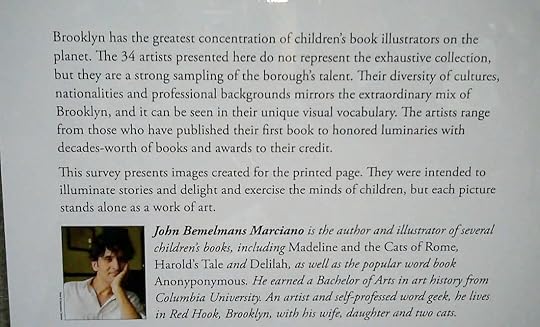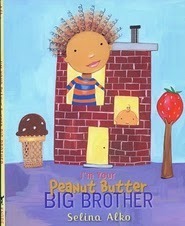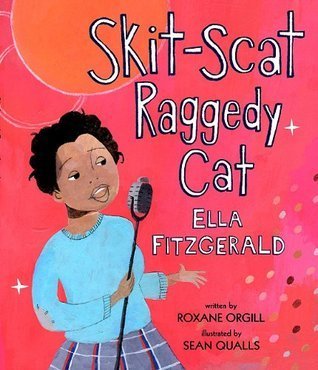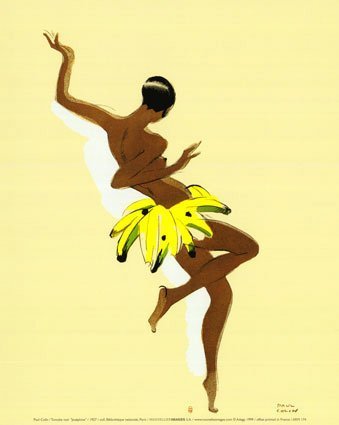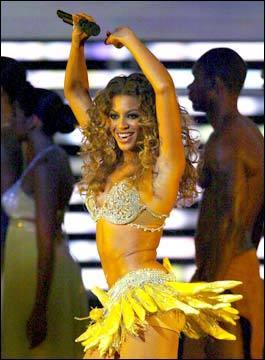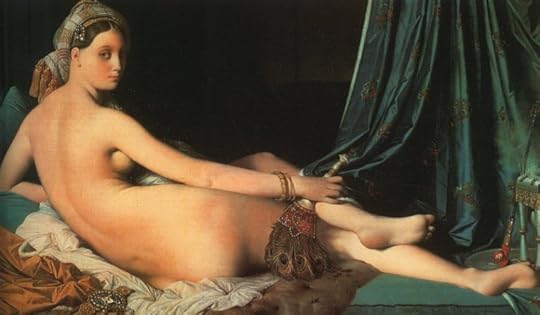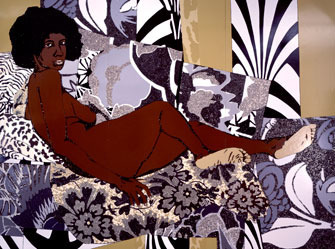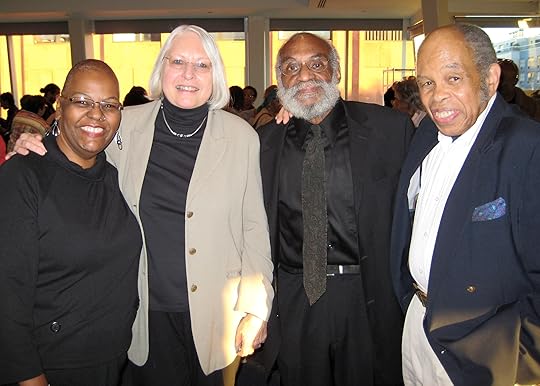Zetta Elliott's Blog, page 104
October 20, 2010
sliding glass doors
Whenever I give a presentation, I cite Rudine Sims Bishop's argument that children's books should serve as a mirror, a window, and a sliding glass door. Students are quick to answer when I ask them to explain the difference between a mirror and a window: the former shows you your reflection, and the latter lets you see inside or outside (though in the right light, a window can also function as a mirror). We talk about walking down the street in Brooklyn at night, and looking into the windows of people who forgot to draw their blinds; the kids titter as I prod them to consider what they could do if there was a sliding glass door. As audacious as it seems, if you're welcomed into someone's home, you could eat and play and talk with that person instead of simply observing her or him. These days I add a little bit more, especially if I'm speaking to a group of adults. Peering through a window is voyeurism; the glass protects the watcher and those being watched, I suppose, though a voyeur violates others by observing them without consent. That's why the sliding glass door metaphor is so important—a good book (taught the right way) should encourage and enable the reader to enter and engage in the world of its characters. The question is, how many readers accept that invitation and how many prefer to stand in the shadows with their faces pressed up against the glass? This brings to mind Jacqueline Woodson's Horn Book essay, "Who Can Tell My Story," about breaking bread and sitting at the table with someone different in order to fully appreciate the complexity of another culture:
While I am not Jewish, my partner is, and we observe and respect each other's religious beliefs and plan to raise our children with our two sets of religious values. In this way
I have stepped inside the house of my partner's experience. It is not my house, nor will it ever be, but there are elements of it we share. (my emphasis)
When I speak to educators, I now try to offer ways in which they can encourage young readers to participate in the lives of my characters. Instead of withdrawing from aspects of the narrative that seem "too different," ask students to consider how they felt when someone they loved went away. Ask them to name a skill they were taught by an elder or friend. Ask them to think of a threshold they crossed—a pivotal moment of transition; which aspects of your personality stayed the same, and which aspects changed? Read a book as though you're willing to be transformed by the experience.
Speaking of Jacqueline Woodson, her dramatic adaptation of Peace, Locomotion will debut at the Kennedy Center. Check out her article at The Huffington Post on how poetry opened up a world of possibilities for her.
Next, stop by Chasing Ray to hear what the panelists have to say about silence and rage—what made YOU want to scream when you were a teen?








October 17, 2010
Drawn in Brooklyn ~ Part 2
As promised, here's my interview with Selina Alko and Sean Qualls; Selina also let me know that she, Pat Cummings, and Greg Christie will be taking part in a multicultural literacy conference with Reach Out & Read at Scholastic in SOHO. From 8:30 – 11:30 am this Thursday, October 21.
Ok, so I now realize that it's not easy to film things that are under glass…so I'm just going to post some photos I was able to pull off my not-so-hot film footage. These are *some* of my favorites, but they're also the best images I could salvage so please don't feel hurt if you're an illustrator! If you're in the tri-state area, do whatever you can to get over to the BPL to see this spectacular show before it closes in January…you can also watch a slideshow with pristine images here.
message from the curator
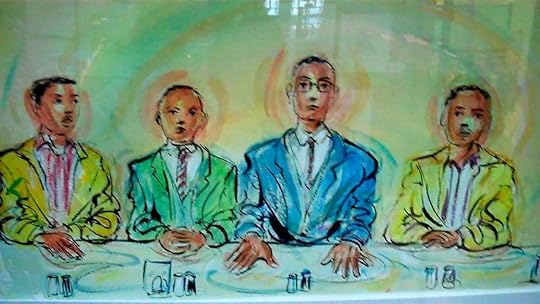 Brian Pinkney, Sit-In: How Four Friends Stood Up By Sitting Down
Brian Pinkney, Sit-In: How Four Friends Stood Up By Sitting Down
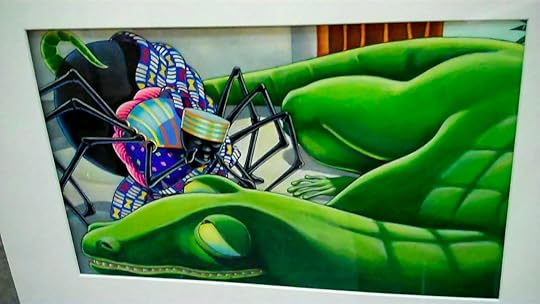 Pat Cummings, Ananse and the Lizard
Pat Cummings, Ananse and the Lizard
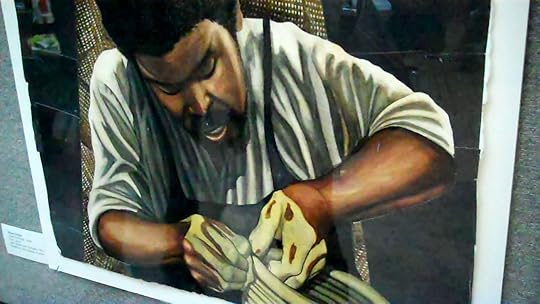 Bryan Collier, Dave the Potter
Bryan Collier, Dave the Potter
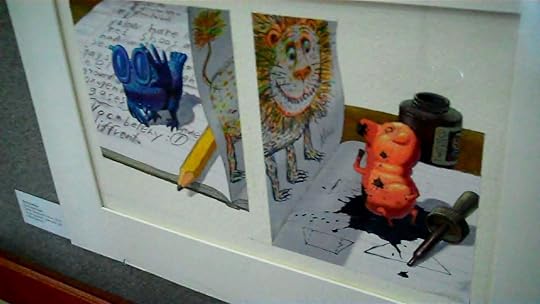 Boris Kulikov, The Eraserheads
Boris Kulikov, The Eraserheads
 SAm Tomasello, Mother Sea Turtle
SAm Tomasello, Mother Sea Turtle








October 16, 2010
Drawn in Brooklyn ~ Part 1
I almost stayed home today, but the whistling wind drew me out…to my surprise, many of the roses in the garden survived last week's freak hailstorm and crisp leaves had been swept into perfect piles just waiting for my feet; teens were busy harvesting their crop in the children's garden, and a boy in a pumpkin-colored sweater let his father tie his shoe and then dashed off: "I'm skipping, Dad! I'm skipping!" And there was no one to tease him, to call him a sissy, or say he's too old to act that way (check out this great picture book: My Princess Boy). The garden's a sanctuary. But my main destination was the central branch of the Brooklyn Public Library. You've still got plenty of time to see this exhibit yourself, but I thought I'd try to film some of Drawn in Brooklyn for those folks who aren't fortunate enough to live nearby. It'll take me a while to piece all my footage together, but in the meantime here's Part 1; tomorrow I'll post my impromptu interview with contributors Sean Qualls and Selina Alko.








October 15, 2010
no more conferences
I am very tired today, but also very grateful for the good friends and engaged educators who made this week's conferences a success. Amy Bowllan was the perfect host/emcee for the diversity symposium at The Hewitt School, and we had a really good conversation about multicultural books with librarians, Wade Hudson of Just Us Books, and Hannah Ehrlich of Lee & Low. Amy has posted a list of resources on her blog, so check it out. Afterward, Amy and her daughter graciously escorted me out to Queens, and Lyn Miller-Lachmann was another fabulous hostess; we left early the next morning for the New England Conference on Multicultural Education. Lyn and I presented on "Migration, Identity, and Return," and got a warm reception from the educators in attendance. Afterward, a Snickers bar was in order, and then we reached NYC just as the Nor'easter blew into town…woke with a migraine today, but the sun is shining and the heat's coming on, which must mean it's chilly outside—at last! Shadra posted the above video on my Facebook page last night; initially I freaked out b/c I didn't know it was online, but then I watched the video and realized how much I miss teaching and developing original presentations. My talk, "Hoochie No More: Mickalene Thomas Reframes the Blaxploitation Aesthetic," was for the Feminism Now Symposium held at the Brooklyn Museum in 2008. You can't see the slide show, but here are some of the images I shared with the audience:








October 14, 2010
happy anniversary to Just Us Books!
I just wanted to share this message from the founders of Just Us Books:
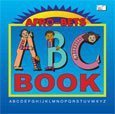 This month Just Us Books is celebrating our 22nd anniversary in the industy. Over the years, Just Us Books has focused on getting our books into the hands of thousands of families and children who need them the most. The statistics sited by Andrea Pinkney on the dirth of children's books in economically challenged families was truly alarming.* Just Us Books is committed to redoubling its efforts to change this situation.
This month Just Us Books is celebrating our 22nd anniversary in the industy. Over the years, Just Us Books has focused on getting our books into the hands of thousands of families and children who need them the most. The statistics sited by Andrea Pinkney on the dirth of children's books in economically challenged families was truly alarming.* Just Us Books is committed to redoubling its efforts to change this situation.
In the days to come, Wade and I will be posting tidbits of our company's history on our Just Us Books FB fan page. We invite you to join us and the continuing conversations surrounding the importance of literature for children of African descent. We also invite you to share your comments and links via my blog.
On this blog and our FB pages, we will be posting conference photos, commentary, questions and extending a web of conversations and ideas about the conference and other aspects of information concerning African American children's literature.
Just Us Books' mission for the past 22 years has been to create, publish and distribute quality children's books that spotlight the African American experience and to make those books available to all children. We feel blessed to be in the company of good and committed people who have supported our efforts in this journey. Thanks to all of you. We look forward to keeping in touch and continuing to make a difference in the lives of our children.
Sincerely,
Cheryl and Wade
Cheryl Willis Hudson and Wade Hudson
co-founders, JUST US BOOKS, INC.
Good books still make a difference!
www.justusbooks.com
Follow Just Us Books on Twitter
www.twitter.com/justusbooks
*Andrea Davis Pinkney noted that in low-income neighborhoods, there is 1 book per 300 households.








October 12, 2010
Latino children's literature
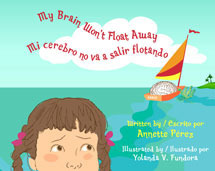 Make sure you stop by The Happy Nappy Bookseller all this week because Doret's doing a feature on Latino MG & YA novels. How many do you think were published in 2010? Less than 60 black-authored novels were published here in the US, and if you think THAT's bad, wait until you see the appalling figures for Latino authors. Doret's featuring a different author every day, so go check out her list and then keep going back for more…At the A Is For Anansi conference this past weekend, Oralia Garza de Cortes pointed out that 22% of this nation's children are Latino. So when will the all-white world of children's literature recognize that fact? I met Mario Picayo at the conference; he started his own Latino press—editorial Campana—please do check it out.
Make sure you stop by The Happy Nappy Bookseller all this week because Doret's doing a feature on Latino MG & YA novels. How many do you think were published in 2010? Less than 60 black-authored novels were published here in the US, and if you think THAT's bad, wait until you see the appalling figures for Latino authors. Doret's featuring a different author every day, so go check out her list and then keep going back for more…At the A Is For Anansi conference this past weekend, Oralia Garza de Cortes pointed out that 22% of this nation's children are Latino. So when will the all-white world of children's literature recognize that fact? I met Mario Picayo at the conference; he started his own Latino press—editorial Campana—please do check it out.








October 10, 2010
A Is for Anansi ~ Part 2
We have work to do. I almost don't know where to begin—before the conference I considered posting a draft US Publishing Equalities Charter on this blog, but then I looked at the UK draft and realized that was too much work for one person. What we need is a similar list of specific actions that are appropriate to the many different members of the kidlit community (readers, teachers, librarians, publishers, marketers, reviewers, parents, kids, artists, etc.). That's just one conclusion we came to during the post-conference brunch earlier today. But let me back up and share some of what transpired on Friday night; I wasn't taking notes, and apologize for not including remarks on every presenter. The panels were filmed, and a documentary will eventually be made of the entire conference.
After Andrea Davis Pinkney delivered her keynote address, Cheryl Willis Hudson moderated a panel on marketing, distributing, and selling black children's literature. Joe Monti, a former buyer for Barnes & Noble, shared a first-hand account of a publisher that brought him whitewashed covers of Ursula Le Guin's Earthsea series. When he objected, the publisher returned with a "suntanned" version of the same blond cover model. Hannah Ehrlich of Lee & Low Books gave a fantastic presentation on finding markets for multicultural books; I was particularly struck by her suggestion that it's nearly impossible to win someone over at the point of sale. The buyer has to already be receptive to multicultural books; if that's the case, then selling particular titles is much easier. But you can't go in "cold" and try to win someone over because the resistance will be too strong. That made me think of Elizabeth Bluemle's handselling strategies, and how much work has to be done *before* book buyers even reach the store…Agent/author Regina Brooks and illustrator Colin Bootman were also on that panel; KT Horning shared so many great ideas this weekend—this wasn't from her panel presentation, I don't think, but she urged the restoration of funding for libraries since *they* used to be the primary buyers of children's literature and therefore had the power to influence publishers' offerings instead of big chain stores.
My morning panel was "Issues of Identity & Representation: How Far Have We Come?" We were preceded by Dr. Nancy Tolson who gave a fabulous historical survey of African American children's literature; Nancy has also studied and taught in Ghana, and rightly suggested we invite African publishers to the next conference. My panelists were great, and I did take notes but will just share these highlights: legendary illustrator George Ford recalled the early days of his career when "people of vision" in the industry opened doors and created opportunities for emerging artists; George and others invoked the Council on Interracial Books for Children, and we now realize that we need to create a 21st century version of the CIBC. I'm going to take a closer look at this 1998 article by Beryle Banfield:
This is a particularly appropriate time at which to reflect on the role of the Council on Interracial Books for Children (CIBC) on its role in the promotion and development of children's literature that would adequately reflect our multi-racial society. It is also a truly troubling time for those who have shared the concerns of the CIBC over the last thirty years. The hard won Civil Rights gains of African Americans are being steadily eroded through court decisions and legislative actions. Multi-cultural studies are being derided as "feel good ethnic studies." The term politically correct has been transformed into a mocking description of vocabulary or actions used to avoid race or gender bias. There is no longer the sense of social concern and social responsibility that existed at the time that the CIBC was established. (my emphasis)
Illustrator Nicole Tadgell talked about the unfair burden of historical narratives and has taken it upon herself to write more fantasy stories for black children; the demand for fantasy was reiterated by the adolescent boys on the next panel. Unfortunately, the girls who were invited to participate didn't show up, which meant the conference started to feel somewhat male-centered. But that could just be me. I almost skipped the final panel on Educating Black Boys but I'm glad I didn't because gave a rousing presentation and reminded us that 66% of black men are NOT incarcerated. Which isn't to say there isn't a problem, but the bright, articulate boys on the previous panel prove that the future's not all doom and gloom—sometimes that's just the narrative we choose to focus on…
One of the best things about this weekend is that I got to hang out with Laura Atkins—lecturer, literary consultant, and former editor at Lee & Low and Children's Book Press. I'm getting better at mingling, but it definitely helped having such a good friend to process everything with…Laura shared her excellent article on White Privilege in Children's Publishing, and then moderated a panel on the evaluation of black children's literature. If only we could get Laura's message into the publishing houses where so many white editors remain oblivious to their biases and blindspots…and how many editors do you think were present at the conference? It takes a LOT of courage to walk into a room full of frustrated people and admit you're partly to blame for that frustration. But that's just what John Sellers of Publishers Weekly did—he checked his reviews of children's books and acknowledged that books featuring PoC constitute just 100 of the 1600 books PW reviews each year. He also made it clear that he's open to suggestions, which impressed me even more. It was great to meet Summer Edward who served as respondent on that panel and introduced some challenges facing children's book authors in the Caribbean.
Ok, I'm running out of steam! We held a debriefing session this morning, but I didn't contribute much because my head felt like it was about to burst; KT and I took the train back to Brooklyn, and then I walked through the garden, breathing deeply and trying to order my thoughts. There's SO much work to do, and yet I sense the beginning of a coalition—and that's what we really need: a team of people willing to work for change. I'll write more on this topic later in the week; for now I need to recover and gear up for the other two conferences I have scheduled this week! I'll be at Amy Bowllan's Diversity Symposium on Wednesday, and the New England Conference on Multicultural Education on Thursday…








October 9, 2010
A Is for Anansi ~ Part I
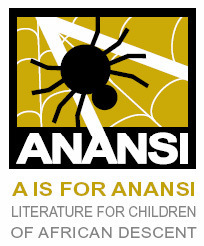 I'm in total HSP overload right now from having been out of the house for twelve hours straight…but those were some of the best twelve hours I've spent in ages! The A Is for Anansi conference was GREAT, and I've got lots to share but for now thought I'd post some of the photos I took at the award ceremony/reception earlier this evening. As keynote speaker Andrea Davis Pinkney said on Friday night, we've got a lot to celebrate AND a lot of work still to do.
I'm in total HSP overload right now from having been out of the house for twelve hours straight…but those were some of the best twelve hours I've spent in ages! The A Is for Anansi conference was GREAT, and I've got lots to share but for now thought I'd post some of the photos I took at the award ceremony/reception earlier this evening. As keynote speaker Andrea Davis Pinkney said on Friday night, we've got a lot to celebrate AND a lot of work still to do.
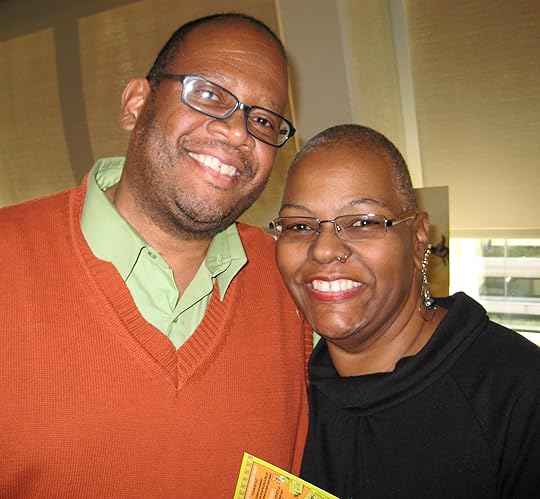 Dr. Nancy Tolson & her husband
Dr. Nancy Tolson & her husband
 KT Horning, Dir. of the Cooperative Children's Book Center & Sandra Payne (we love librarians!)
KT Horning, Dir. of the Cooperative Children's Book Center & Sandra Payne (we love librarians!)
 smiling after Sandra asked me to sign ALL of my books! (6)
smiling after Sandra asked me to sign ALL of my books! (6)
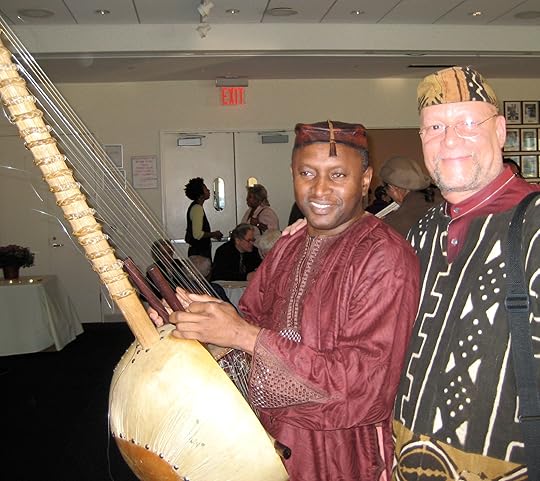 Gambian musician Salieu Suso & Andrew P. Jackson, Exec. Dir., Queens Library's Langston Hughes Community Library & Cultural Center
Gambian musician Salieu Suso & Andrew P. Jackson, Exec. Dir., Queens Library's Langston Hughes Community Library & Cultural Center
 Illustrator George Ford & Nancy Tolson
Illustrator George Ford & Nancy Tolson
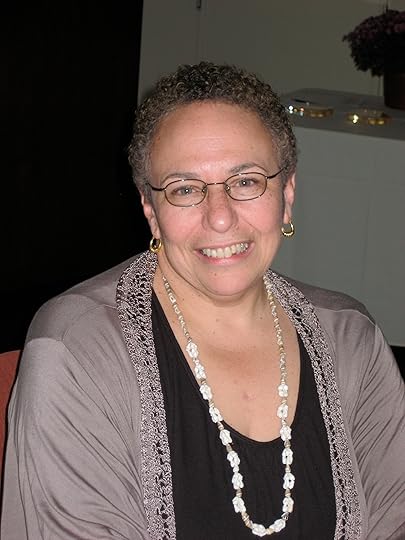 Bernette Ford, founder of Color-Bridge Books
Bernette Ford, founder of Color-Bridge Books
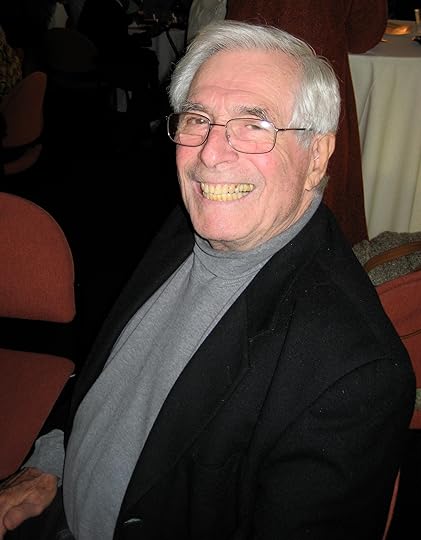 Author William Loren Katz
Author William Loren Katz
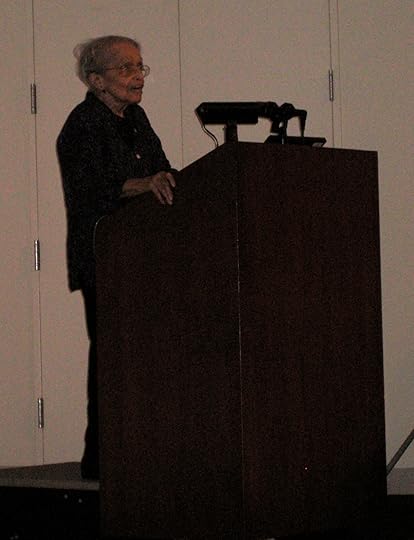 Esther Cooper Jackson (she's 94!)
Esther Cooper Jackson (she's 94!)
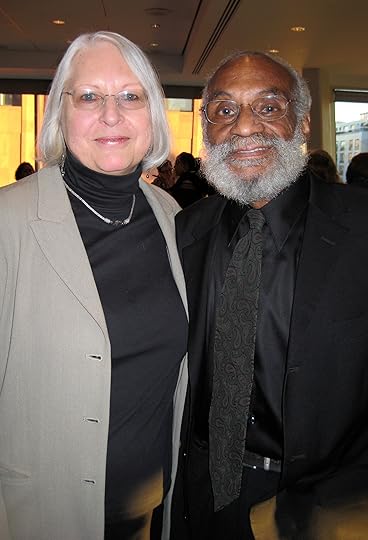 Honorees, Leo & Diane Dillon
Honorees, Leo & Diane Dillon
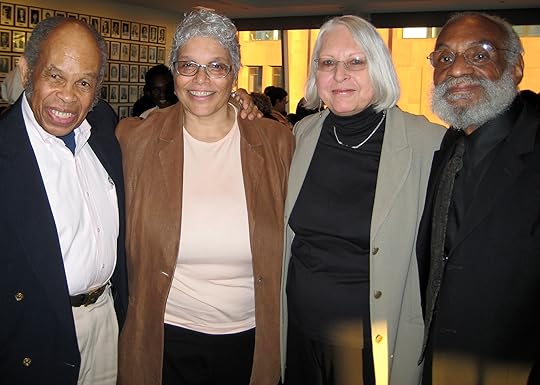 George, Pat Cummings, Diane & Leo
George, Pat Cummings, Diane & Leo
 Dr. Rashidah Ismaili-AbuBakr, & Tony Medina with a poster by Tom Feelings (another honoree)
Dr. Rashidah Ismaili-AbuBakr, & Tony Medina with a poster by Tom Feelings (another honoree)
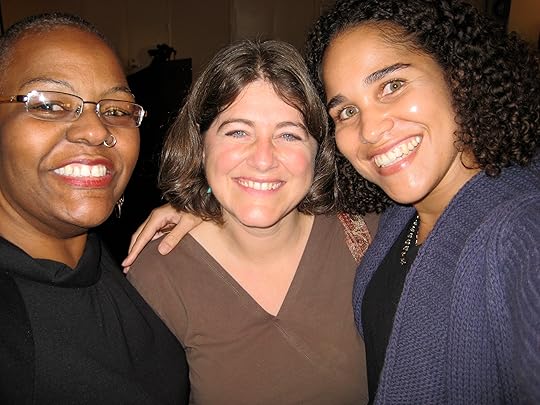 the signature shot! Nancy, my good friend Laura Atkins, & me
the signature shot! Nancy, my good friend Laura Atkins, & me








October 7, 2010
integrating bookstores
You're probably already familiar with Elizabeth Bluemle's efforts to engage booksellers and other members of the kidlit community in a conversation about race and books; in addition to her "Elephant in the Room" post on her PW blog ShelfTalker, Elizabeth has recently developed resources for booksellers who want to promote equality within their stores. I intend to cite her efforts in my presentation on Saturday but will hold off on critiquing this latest endeavor, which is to promote "books NOT aimed at educating readers about race." The goal instead is "finding and sharing the stories of Black, Asian, Hispanic characters doing all the fun stuff their Caucasian counterparts do in books." Hmm. I guess that means that neither of my books for young readers would be included in this promotional effort.
I really admire this initiative, and have been thinking a lot lately of the serious challenge we face in developing wider markets for books that feature children of color. This is an age-old debate: how do we make members of the majority group care about those of us on the margins? I suppose one approach is to focus on "all the fun stuff" that connects us. Maybe that's the "wedge" that will open the door just enough for other topics to slip in. Mostly Elizabeth's strategies are designed to subtly expose a book buyer's prejudice; if a bookseller describes the book without mentioning race or revealing the cover, then the book buyer must consider why s/he rejected a book that sounded interesting but turned out to be about people of color.
The language we use to booktalk books is very important. I encourage booksellers to handsell books with people of color on the cover the same way they booktalk books with white kids on the cover when talking to white customers: hook them with the story, the character, the dilemmas and adventures. You don't mention race unless race IS the story. Take historical fiction as a parallel. For many kids, the minute you describe a book as historical fiction, their eyes glaze over. But if you say, "This book is about a girl who gets kidnapped from her home and tries to escape and become a spy," well, they're in.
So how would a bookseller describe A Wish After Midnight? "This book is about a girl who gets sent back in time and has to learn how to live in Civil War-era Brooklyn." Leave out the race riot at the end? Or refer to it only as the draft riot? I guess Wish is a book that would be hard to handsell to a white reader because it is—in large part—"about race."
Now, I am a realist—really, I am. I know that a spoonful of sugar helps the medicine go down. And I have written loads of stories about children playing in snow, and making new friends at school, and learning to respect the environment. Of course, all those stories are as yet unpublished. It's a Catch-22 for black authors, as Rudine Sims Bishop explains:
Issues of audience are obviously related to issues of content and theme. Many teachers and librarians think books about Afro-American experience are meant for Black children only. In their minds, the Afro-American experience is equated with the hardships and social problems they associate with growing up Black and poor in the city—fatherless home, gangs, drugs, tough or obscene language, police brutality, crime, and so forth. Therefore, they reason, 'Black experience' books are so far removed from the experiences of white children as to be irrelevant at best, or too harsh and inexplicable at worst. In the minds of these same people, stories in which such hardships play no role and children face no racially motivated conflicts are not 'Black experience' stories at all.
Of course, a book that's set in the city and features a fatherless, impoverished girl with a drug dealing brother can ALSO be about belonging, community, self-acceptance, and friendship. I'm wary of the "fun versus educational" split; an engrossing read shouldn't have to be "lite" and/or avoid serious topics of injustice. Race matters, and I'm not sure how much progress we'll make as a society if we encourage readers to act like it doesn't—isn't this like asking people to be "colorblind" and *not* confront difference? Ok, back to my conference papers; more thoughts on this issue to come.








October 6, 2010
coming soon
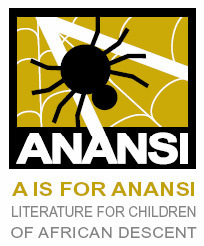 It's almost here—the A Is For Anansi conference at NYU! Friday night will be fun because I don't have to present and can just focus on the keynote speakers and panelists. But I'm a little anxious about my panel on Saturday morning; I felt I should include some racist images from US children's literature, and got really demoralized looking at them all last night—stop by Book Tryst to see what I'm talking about…OR, just come to our panel and hear how scholars, illustrators, and authors feel about the progress we've made and have yet to make in the field of children's literature.
It's almost here—the A Is For Anansi conference at NYU! Friday night will be fun because I don't have to present and can just focus on the keynote speakers and panelists. But I'm a little anxious about my panel on Saturday morning; I felt I should include some racist images from US children's literature, and got really demoralized looking at them all last night—stop by Book Tryst to see what I'm talking about…OR, just come to our panel and hear how scholars, illustrators, and authors feel about the progress we've made and have yet to make in the field of children's literature.










